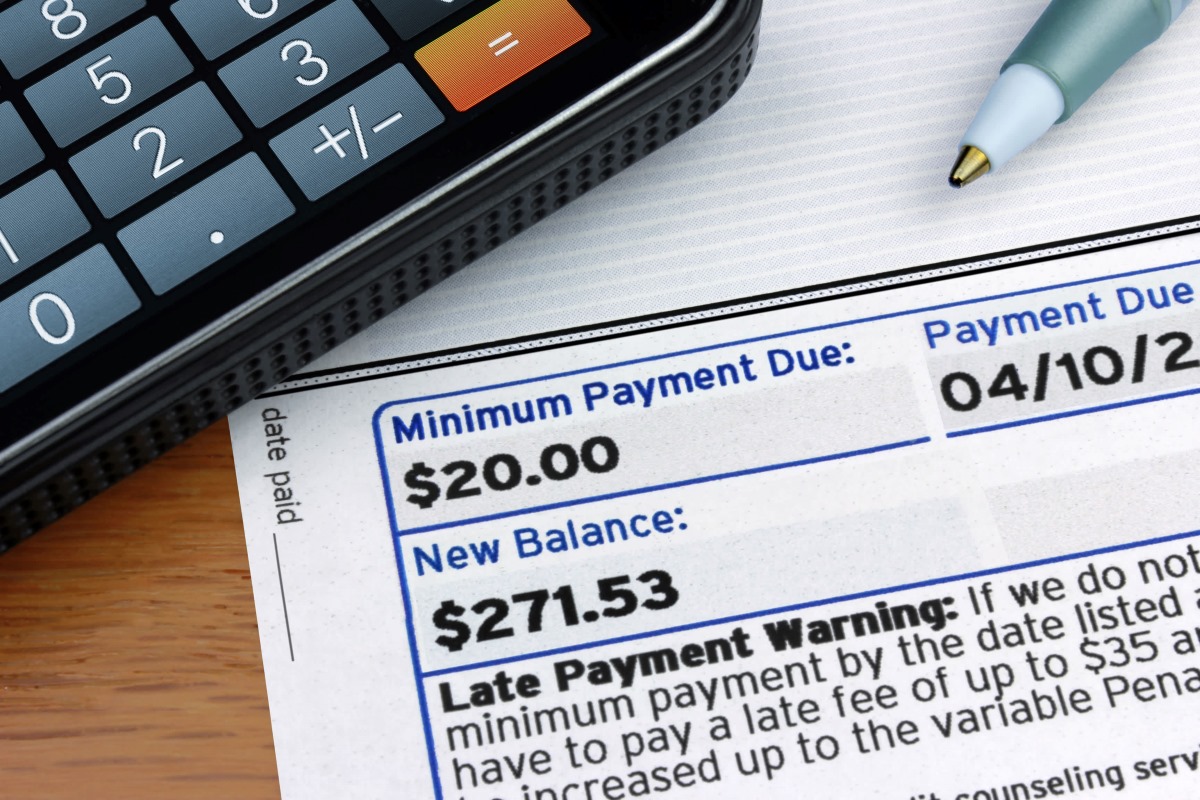

Finance
What Is A TPA 401K
Modified: February 21, 2024
Learn about the benefits and features of a TPA 401K plan in the finance industry. Find out how this retirement option can help you secure your financial future.
(Many of the links in this article redirect to a specific reviewed product. Your purchase of these products through affiliate links helps to generate commission for LiveWell, at no extra cost. Learn more)
Table of Contents
Introduction
When it comes to planning for retirement, many individuals turn to 401K plans as a reliable and effective investment tool. These plans are a type of employer-sponsored retirement account that allows employees to save and invest a portion of their income for their golden years. However, managing a 401K plan can be complex and time-consuming for employers. This is where a Third-Party Administrator (TPA) comes into play.
A TPA, or Third-Party Administrator, is a professional service provider that helps employers manage the administrative and compliance aspects of their 401K plans. They act as a middleman between the plan sponsor (employer) and the plan participants (employees). TPAs play a crucial role in ensuring that the plan operates smoothly, adheres to legal requirements, and offers the desired retirement benefits to employees.
In this article, we will dive deeper into what exactly a TPA 401K is and explore the role of TPAs in managing these retirement plans. We will also discuss the advantages and disadvantages of using a TPA for a 401K plan and provide insights on how to choose the right TPA for your specific needs.
Definition of a TPA 401K
A TPA 401K, also known as a Third-Party Administrator 401K, is a retirement plan that is managed by a third-party administrator (TPA) on behalf of the employer. The TPA is responsible for overseeing the day-to-day operations of the plan, including tasks such as plan design, recordkeeping, compliance testing, and participant communication.
TPAs are industry experts who have extensive knowledge of retirement plan regulations and best practices. They ensure that the 401K plan meets all legal requirements set by the Internal Revenue Service (IRS) and the Department of Labor (DOL). This includes ensuring that the plan is non-discriminatory, that contributions and distributions are properly handled, and that plan assets are appropriately invested.
When an employer chooses to use a TPA for their 401K plan, they benefit from the expertise and experience of the TPA in managing retirement plans. The TPA takes on the administrative burden of the plan, allowing the employer to focus on their core business operations. This can be particularly beneficial for small to medium-sized businesses that may not have the resources or expertise to manage a 401K plan in-house.
It is important to note that a TPA 401K is different from a self-directed 401K or a provider-administered 401K. In a self-directed 401K, the employer takes on full responsibility for managing the plan, including recordkeeping and compliance. In a provider-administered 401K, the plan is managed by a financial institution or investment provider, who handles both administrative tasks and investment options. A TPA 401K, on the other hand, specifically involves the outsourcing of administrative tasks to a third-party administrator.
Overall, a TPA 401K provides employers with the peace of mind that their retirement plan is being expertly managed and that they are in compliance with all regulatory requirements. By partnering with a TPA, employers can focus on running their business while providing their employees with a valuable retirement savings option.
Role of TPAs in 401K Plans
The role of TPAs in 401K plans is crucial in ensuring the effective administration and compliance of the retirement plan. TPAs handle various responsibilities and tasks to ensure that the plan operates smoothly and offers the desired benefits to employees. Let’s explore some of the key roles that TPAs play in 401K plans:
- Plan Design: TPAs work with employers to design a 401K plan that meets the specific needs and goals of the company and its employees. They consider factors such as eligibility requirements, contribution limits, vesting schedules, and investment options to create a plan that aligns with the company’s objectives.
- Recordkeeping: TPAs are responsible for maintaining accurate records of employee contributions, employer matching contributions, and investment gains or losses. They ensure that employee account balances are accurately updated and provide regular statements to plan participants.
- Compliance Testing: TPAs conduct annual compliance testing to ensure that the 401K plan meets the requirements set by the IRS. This includes testing for non-discrimination between highly compensated employees and non-highly compensated employees in terms of contributions and benefits. TPAs help employers identify any compliance issues and provide guidance in resolving them.
- Participant Communication: TPAs play a vital role in communicating plan features, investment options, and retirement education to plan participants. They provide educational materials, conduct seminars, and answer participant inquiries to ensure that employees understand their retirement benefits and make informed decisions.
- Government Reporting: TPAs handle the preparation and submission of various governmental forms and reports, such as Form 5500, which provides information on the financial condition and operations of the plan. They ensure that the plan remains in compliance with reporting requirements and deadlines set by regulatory authorities.
By assuming these important responsibilities, TPAs alleviate the administrative burden on employers and help ensure that the 401K plan operates smoothly and in compliance with regulations. They provide expertise and guidance to employers, resulting in a well-managed retirement plan that benefits both the employer and employees.
Advantages of Using a TPA for a 401K Plan
Employers who choose to use a Third-Party Administrator (TPA) for their 401K plan can enjoy a range of benefits. Here are some key advantages of using a TPA for a 401K plan:
- Expertise and Compliance: TPAs are well-versed in retirement plan regulations and have extensive knowledge of best practices. They ensure that the 401K plan remains compliant with changing laws and regulations, reducing the risk of penalties or legal issues. Employers can rely on the expertise of TPAs to navigate the complexities of retirement plan administration.
- Administrative Support: Managing a 401K plan involves various administrative tasks, such as recordkeeping, compliance testing, and participant communication. By utilizing a TPA, employers can outsource these responsibilities, saving time and effort. TPAs handle the day-to-day administrative tasks, allowing employers to focus on their core business operations.
- Reduced Liability: With a TPA managing the 401K plan, employers can mitigate potential liability risks associated with plan administration. TPAs ensure that the plan is in compliance with all regulatory requirements, reducing the likelihood of errors or oversights that could result in legal consequences.
- Customized Plan Design: TPAs work closely with employers to design a 401K plan that meets their specific needs and goals. They can customize the plan based on factors such as company size, budget, and employee demographics. Employers can offer retirement benefits that align with their company culture and attract and retain talented employees.
- Employee Education: TPAs provide valuable resources and educational materials to help plan participants understand their retirement benefits. They conduct seminars, offer online tools and calculators, and provide personalized guidance to employees. This empowers employees to make informed decisions and take full advantage of the 401K plan.
Overall, utilizing a TPA for a 401K plan provides employers with expert support, administrative efficiency, and reduced liability. By outsourcing retirement plan administration to a TPA, employers can offer a robust retirement benefit to their employees while minimizing the administrative burden and ensuring compliance with complex regulations.
Disadvantages of Using a TPA for a 401K Plan
While there are numerous advantages to using a Third-Party Administrator (TPA) for a 401K plan, there are also some potential disadvantages to consider. These can vary depending on the specific circumstances of the employer and the TPA chosen. Here are a few disadvantages to keep in mind:
- Cost: Employers may incur additional costs when utilizing a TPA for their 401K plan. TPAs typically charge fees for their services, which can vary based on factors such as plan size, complexity, and additional services required. Employers should carefully consider the costs involved and weigh them against the benefits provided.
- Limited Control: By outsourcing the administration of a 401K plan to a TPA, employers relinquish some control over plan management. While TPAs work in the best interest of the employer and plan participants, there may be certain decisions or processes that employers feel they have less direct influence over.
- Communication Challenges: TPAs act as intermediaries between employers and plan participants, which can sometimes lead to communication challenges. Employers may find it difficult to ensure that the TPA effectively communicates plan information and updates to employees, potentially causing confusion or misunderstandings.
- Dependency on TPA: Employers who use a TPA for their 401K plan become dependent on that TPA for plan administration. If the chosen TPA faces financial or operational challenges, it could impact the quality of service provided or even lead to disruptions in plan management. Employers should thoroughly research and select a reputable TPA to minimize this risk.
- Loss of Institutional Knowledge: When outsourcing 401K plan administration to a TPA, employers may lose some level of institutional knowledge and control over plan operations. This can make it challenging for employers to quickly address any plan-related issues or make changes to accommodate evolving needs.
It’s important for employers to carefully weigh the advantages and disadvantages of using a TPA for their 401K plan. A thorough evaluation of the specific needs and circumstances of the company, along with careful consideration of available TPA options, can help employers make an informed decision that aligns with their goals and priorities.
How to Choose a TPA for Your 401K Plan
Choosing the right Third-Party Administrator (TPA) for your 401K plan is a critical decision that can impact the success and effectiveness of your retirement program. Here are some key factors to consider when selecting a TPA:
- Experience and Expertise: Look for TPAs with extensive experience in managing 401K plans. Consider their track record, industry reputation, and the depth of their knowledge in retirement plan administration. A TPA with expertise in your specific industry or business size may be particularly advantageous.
- Services Offered: Assess the range of services offered by the TPA. Do they provide comprehensive plan administration, compliance testing, recordkeeping, and participant communication? Ensure that their services align with your specific needs and the level of support you require for your 401K plan.
- Technology and Tools: Evaluate the technological capabilities and tools offered by the TPA. Look for user-friendly online platforms, mobile accessibility, and robust reporting capabilities. These features can enhance the participant experience and simplify plan administration.
- Communication and Support: Consider the TPA’s approach to communication and participant support. Look for TPAs that provide educational resources, retirement planning tools, and responsive customer service. Clear and effective communication is crucial to ensuring that plan participants understand their benefits and can make informed decisions.
- Costs and Fees: Evaluate the fee structure of the TPA. Assess not only the costs but also the value provided. Compare the fees of multiple TPAs and consider how they align with the services offered and the overall benefits to your organization and employees.
- Compliance and Risk Management: Ensure that the TPA has a strong focus on compliance and risk management. Ask about their processes for ensuring regulatory compliance, conducting compliance testing, and addressing potential issues or audits. A reliable TPA should have robust systems in place to reduce legal and regulatory risks.
In addition to these factors, consider seeking recommendations from other employers or industry colleagues who have used TPAs for their 401K plans. Their firsthand experiences can provide valuable insights and help you make an informed decision.
Ultimately, selecting the right TPA for your 401K plan requires careful assessment of their experience, services, technology, communication, costs, and compliance capabilities. Taking the time to thoroughly evaluate and compare TPAs will help ensure that you choose a partner who will effectively support the administration and success of your 401K plan.
Conclusion
A Third-Party Administrator (TPA) for a 401K plan plays a vital role in effectively managing the administrative and compliance aspects of the retirement program. By outsourcing plan administration to a TPA, employers can benefit from their expertise, reduce liability risks, and streamline the management of the plan.
TPAs handle various responsibilities, including plan design, recordkeeping, compliance testing, participant communication, and government reporting. They ensure that the 401K plan meets regulatory requirements and provides valuable retirement benefits to employees.
While there are advantages to using a TPA, it’s important to consider potential disadvantages such as cost, limited control, and communication challenges. Employers need to weigh these factors against the benefits to determine the suitability of a TPA for their specific needs.
When choosing a TPA for a 401K plan, evaluate their experience, services, technology offerings, communication and support, cost structure, and compliance capabilities. Seek recommendations from other employers to gain insights into their experiences with different TPAs.
In conclusion, utilizing a TPA for a 401K plan can provide employers with administrative efficiency, compliance expertise, and peace of mind. By partnering with a reputable TPA, employers can offer a valuable retirement benefit to their employees while focusing on the growth and success of their core business operations.














